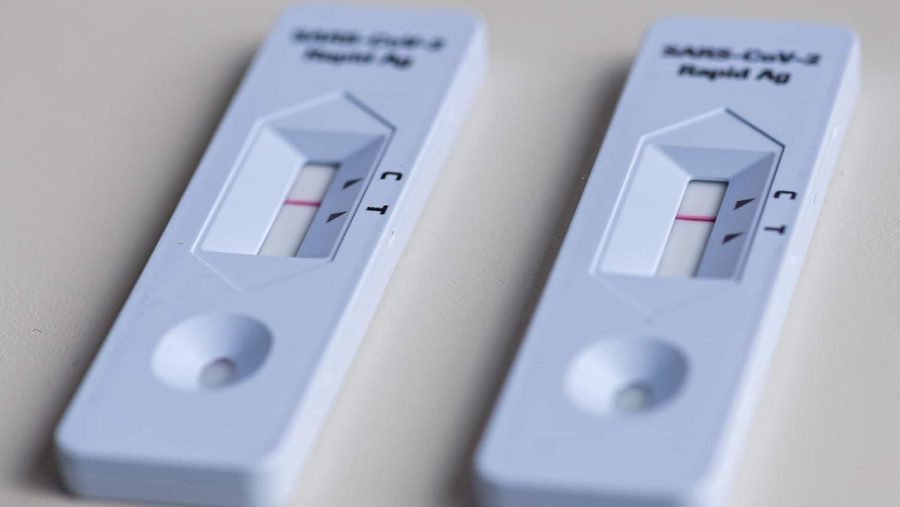Rapid Test Rollout
January 19, 2022
2022 was meant to be a fresh start, the time where we could finally move on from everything that’s happened in the past two years. Instead, a new COVID-19 variant has spread across the country, and it’s made our lives wildly uncertain. Guidelines and protocol are shifting, classrooms are never quite full, and debates have arisen as to whether we’ll be returning to shutdowns anytime soon. One of these issues that’s the most prevalent is how to get tested for COVID. Many testing centers require appointments or are completely private, while the prices for at-home tests have risen to extremely high costs. With this shortage in tests, many who are worried that they might have COVID simply don’t have the ability to confirm their suspicions. Recently, though, the government has introduced some new procedures in order to hopefully increase testing access.
First, there’s the rapid test reimbursement plan. Starting January 15th, private health insurers will be required to cover up to eight at-home COVID tests per month per person. What that translates to is that a person could purchase roughly two COVID tests a week, and their insurance (if private) would pay for and reimburse it. This would make it easier for people to purchase tests, especially considering how their prices have risen over the last few months. In theory, people wouldn’t have to worry about the costs of at-home rapid tests.
There are also options available for those who aren’t privately insured. Starting January 19th, people can place orders for up to four COVID tests using the website COVIDtests.gov, which was established by the Biden administration for the sole purpose of providing these tests. Along with that, plans are being made to produce an additional 500 million COVID tests and increase the supply of tests across the country.
Although these plans are created out of goodwill, there are some concerns and drawbacks. Any tests ordered online will take seven to 12 days to ship, so if a person is exposed immediately, they won’t be able to use these tests until long after they become contagious. As for rapid test reimbursement, the program was announced only a few days ago, leaving insurers unprepared. Insurers haven’t yet been able to communicate with retailers or figure out the exact process for reimbursement. In particular, Blue Cross Blue Shield is concerned that the policies will cause “consumer friction”.
Even ignoring these concerns, tests are still in short supply at the moment. Pharmacies are sold out across the country, which is a problem that can’t be solved immediately with some new policies. As important as they are, COVID-19 tests will likely still remain a main concern of this pandemic, even if they are technically made easier to obtain.
● https://www.npr.org/2022/01/13/1072730868/biden-announces-plans-to-buy-500-
million-more-covid-tests-and-to-offer-free-mask
covid-tests-meet-demand-2022-01-13/
● https://www.cbsnews.com/news/covid-19-home-test-reimbursement-insurers-not-ready/
● https://time.com/6138417/home-covid-tests-insurance-coverage/
● https://thumbnails.cbc.ca/maven_legacy/thumbnails/104/319/covid-antigen-tests-birak-
111021.jpg?crop=1.777xh:h;*,*&downsize=510px:*510w

